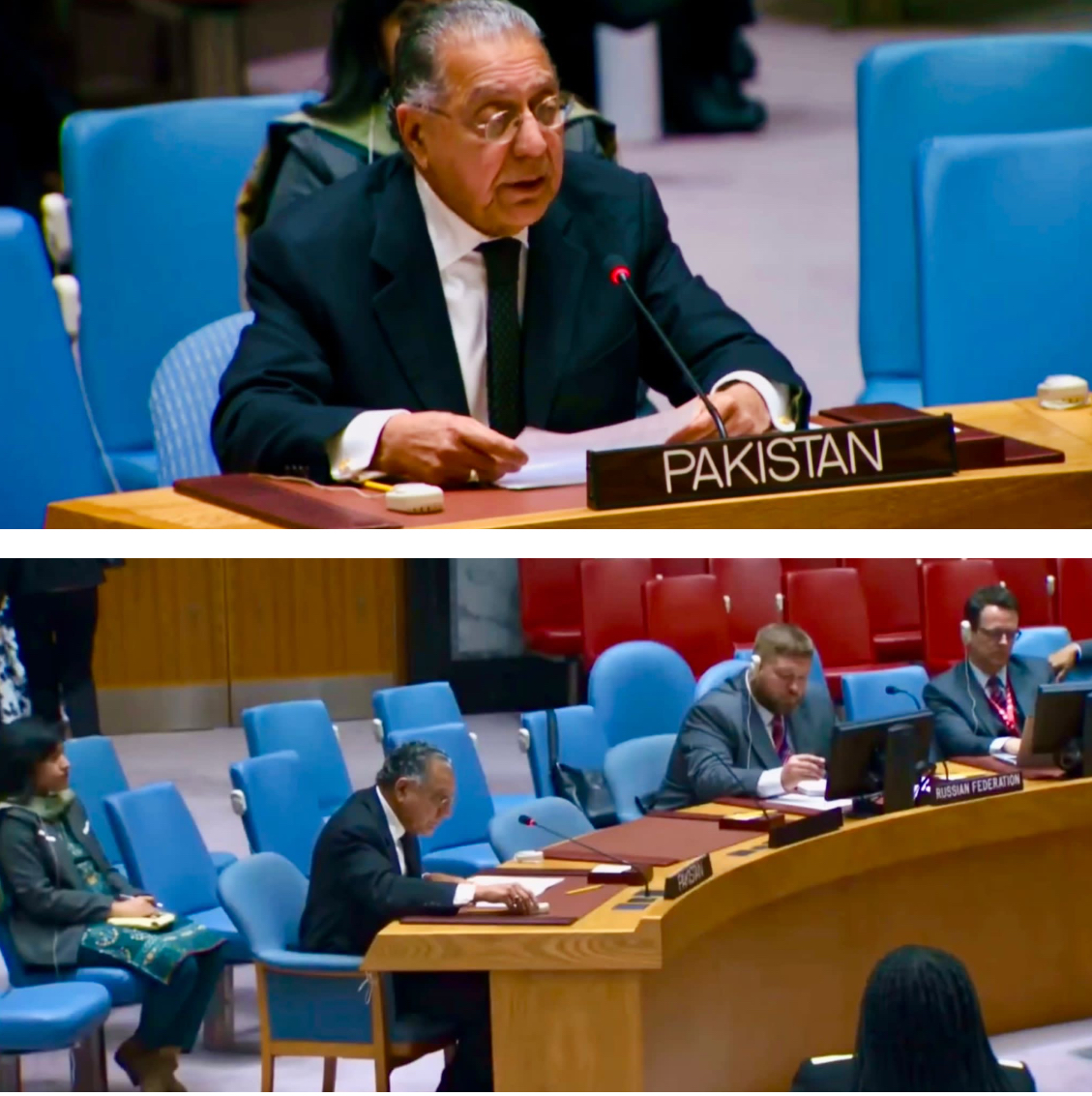 UN, New York 20 Nov 2023: Taking part in an open debate of the UN Security Council today on the agenda item entitled “Promote Sustaining Peace through Common Development”, Ambassador Munir Akram highlighted the connection between peace and development. He said that the unequal structures of finance, trade and technology developed over the past several decades have increased inequality in the world. He listed urgent actions to achieve equitable global development.
UN, New York 20 Nov 2023: Taking part in an open debate of the UN Security Council today on the agenda item entitled “Promote Sustaining Peace through Common Development”, Ambassador Munir Akram highlighted the connection between peace and development. He said that the unequal structures of finance, trade and technology developed over the past several decades have increased inequality in the world. He listed urgent actions to achieve equitable global development.
Mr. President, The Pakistan delegation congratulates you and the Chinese delegation on your active Presidency of the Council during this month and for convening this important debate on development and peace. We thank all the briefers.
The interdependence between peace and development is well established. In the past 8 decades, hundreds of millions of people have been lifted out of poverty, through planned and market-driven development, investment, trade and technological breakthroughs.
Yet, we have failed to promote the Charter’s vision of prosperity for all the “peoples” of the United Nations. Indeed, we live in an age of inequality. The unequal structures of finance, trade and technology constructed over the past several decades have created the super-rich and the super-poor.
The development progress made in the past few decades has been halted and reversed – by the Covid pandemic, by climate change impacts and by proliferating conflicts. One hundred and fifty million people have descended into extreme poverty.
Growing poverty and hunger and the illegal exploitation of natural resources are the principal causes of many of conflicts and disputes among and within states, such as in the Sahel and other parts of Africa. Climate change is exacerbating the scramble for scarce resources, particularly water, and could lead to the proliferation of conflicts.
We support the efforts of the Peace Building Commission to address the resolution of conflict situations through the parameters of development. Yet, no amount of development can bring peace when peoples are suppressed by foreign occupation and forcibly denied of their right to self-determination as is happening in Palestine today and in Occupied Janmmu and Kashmir.
We already have an agreed blueprint for equitable global development comprehensively reflected in the Political Declaration of the SDG Summit. The pledges and commitments made under these agreements must be implemented, in particular to:
– Expand concessional and grant development finance;
– Re-channel the unutilized SDRs;
– Provide urgent debt relief;
– Allocate new development-linked SDRs;
– Adopt an equitable international tax treaty;
– Halt illicit financial flows;
– Reform the international financial architecture;
– Revive international trade as an engine of growth and development;
– Meet climate commitments;
– Mobilize at least $1 trillion annually in sustainable infrastructure investment;
– Bridge the digital divide;
– Utilize technology as a “global public good”.
These pledges and commitments on development should be endorsed by the Security Council so as to transform these into binding obligations. The Global Development Initiative (GDI) launched by President Xi Jinping 2 years ago provides an important vehicle to promote the realization of these development objectives. China’s successful experience provides an invaluable template for rapid development in the Global South. Pakistan will work vigorously in the Group of Friends of GDI to realize our agreed development aspirations and goals, especially at the forthcoming Summit of the Future and construct a common future of prosperity and peace for all mankind as envisaged by President Xi.
Sub Editor: Ghufran